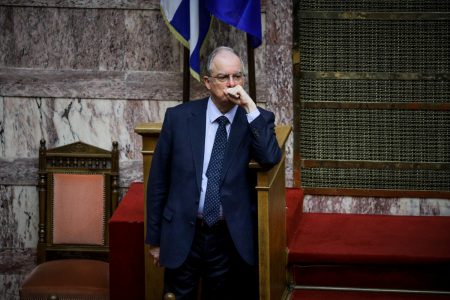As it appears, normalcy is an exceptionally difficult state of affairs to achieve in Greece. At a time when the country is attempting to strengthen its gait in order to cross over to the next stage after the bailout memorandums, a series of open fronts have come along to disrupt whatever degree of normalcy we have achieved.
It is not just the surge of Turkish aggression over the past few days that brings to the forefront the diachronic uncertainty that characterises Greek-Turkish relations, with the well known results that have troubled us for decades.
The “Macedonian” front has opened at the same time, with the customary shoddiness that distinguishes the government’s tactics, triggering political and social repercussions that return us to problematical periods.
In a more low key fashion, one confronts the problematic front of relations with Albania, which for a number of years has proven intractable.
On top of that, the Novartis scandal has fueled enormous political polarisation and the aversion displayed by public opinion towards politics and politicians.
So many times over the past decade, politics and social life have revolved around a real scandal with unproven charges against politicians. That bolstered and strengthened the general, popular sense of universal corruption.
All this is transpiring even as we seek a way out of the suffocating supervision of Greece’s creditors and at the very moment when we are supposed to be drafting a national reconstruction plan, which will serve to offset the memorandums that we have experienced until now.
In a regular country with all those open fronts, one would have at least fashioned a framework of communication between political forces, a least common denominator of national strategy to confront the great challenges that lie ahead.
Yet, instead of an understanding, we are once again confronted by a polarised and divisive climate that serves to undermine any efforts to carve out a common path.
The main responsibility for this lies with the government, which instead of pursuing some sort of consensus, constantly seeks ways to ram and degrade the opposition. At a time when the country needs a strong, decisive, forward-looking leadership, certain people are conducting politics with a view to ephemeral party benefits, cultivating passions and divisions along the way.
Neither the years of the crisis, with the accumulated burdens that they piled upon society and the political system, nor previous ills that we have suffered, have become a lesson to us.
Unfortunately, the political games of the moment continue to prevail over the general interests of the country, of society, and of politicians themselves.
.



